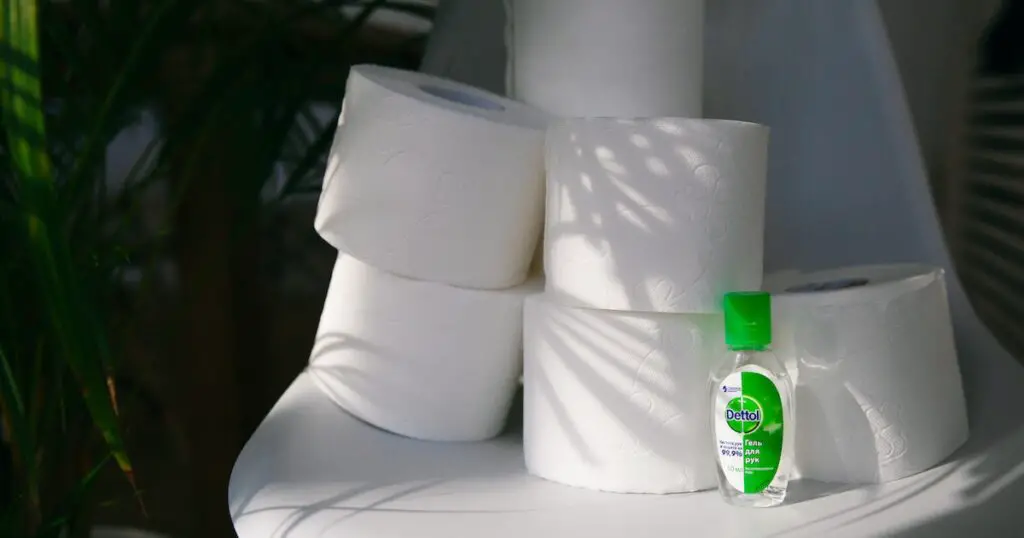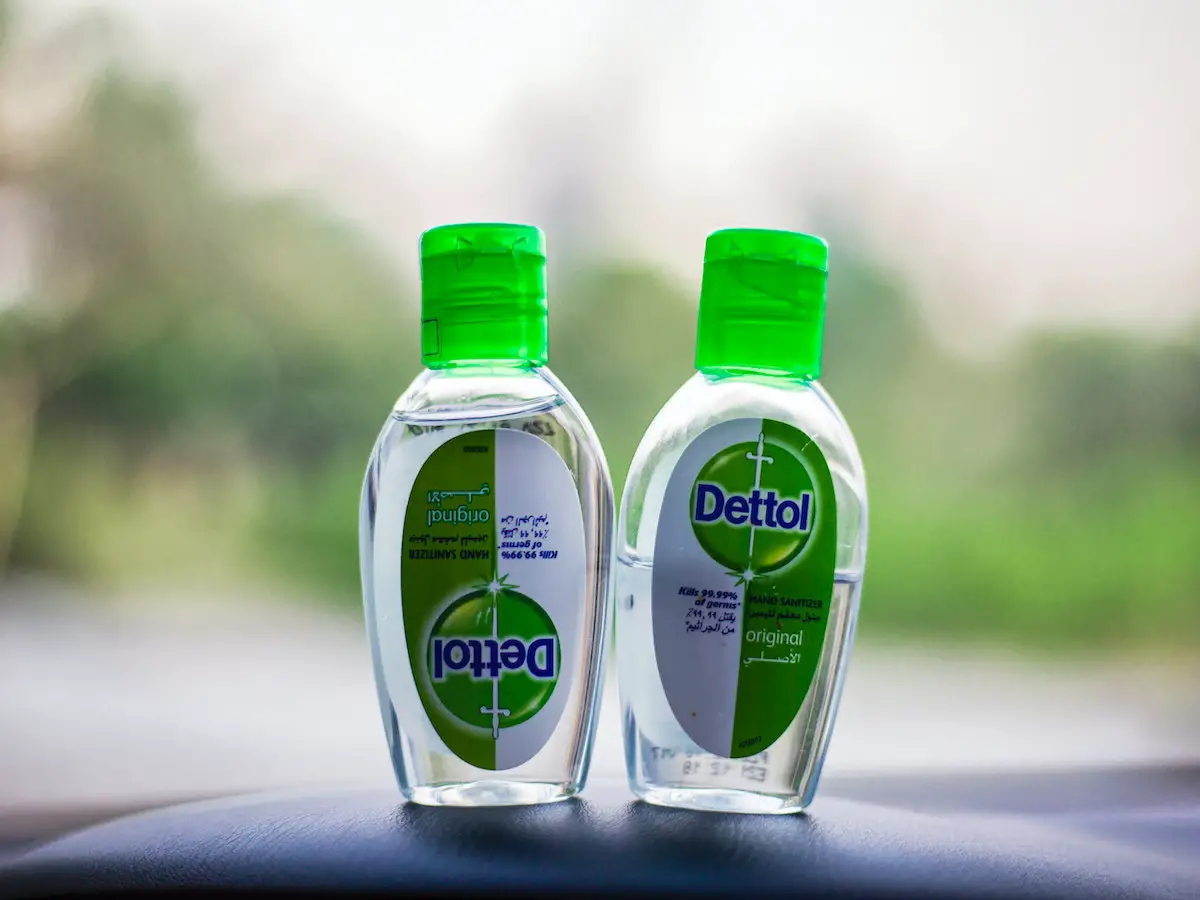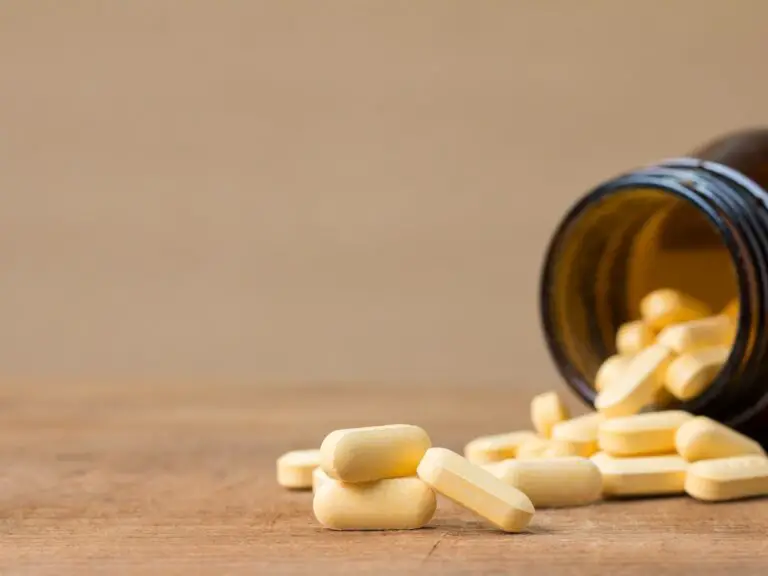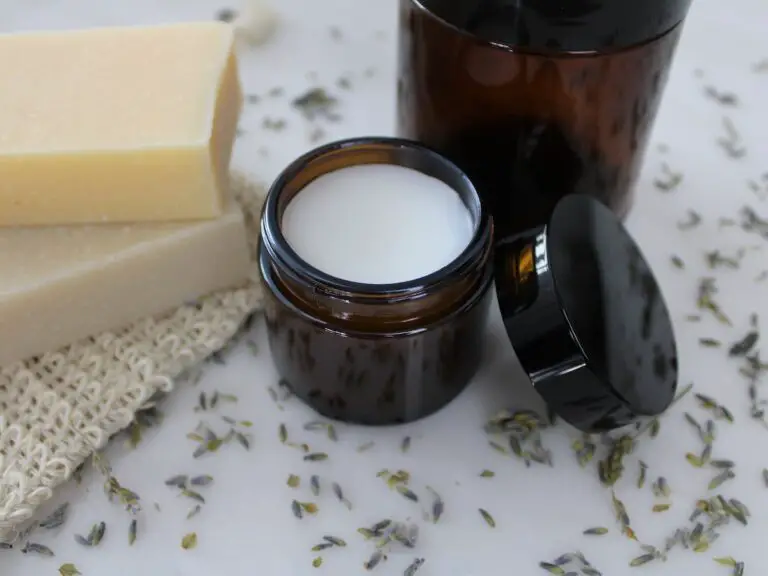5 Side Effects of Dettol on the Skin (You Must Know)
Ever wondered if your favorite antiseptic, Dettol, might have any side effects on your skin? We all appreciate the protection it offers against germs, but let’s delve into the other side of the coin. In this article, we’ll explore the potential side effects of Dettol on the skin, so sit tight and prepare yourself for a healthy dose of knowledge!
- Is Dettol safe for your skin?
- What happens if you use too much?
- Can it cause allergic reactions?
“Knowledge is power, especially when it comes to understanding the products we use daily.”
With this knowledge, you’ll be able to make smart decisions about the health of your face. So, stay with us, and we’ll understand what side effects Dettol does to your face.
Table of Contents
Ingredients in Dettol and their Effects on Skin
Chloroxylenol, pine oil, isopropyl alcohol, and castor oil are the key ingredients that make Dettol work. Each part has a different effect on the face that we will discuss separately.
- Chloroxylenol, the main ingredient, is a strong antibacterial agent. Even though it kills germs well, using it too much or too long can cause skin irritation or dermatitis. Some of the symptoms are swelling, itching, and flaking.
- Pine oil is another ingredient in Dettol. Pine oil is known to calm and reduce inflammation. But for some people, it can irritate their skin or make them sick. These symptoms can show up as a rash, hives, or burning.
- Isopropyl alcohol is an antibacterial, so it is used in Dettol. Even though it kills germs well, it can also be rough on the skin, making it dry and irritated. The skin’s natural oils can be stripped away by long-term contact, which can cause flaking, cracking, or peeling.
- Castor oil is used because it helps keep the skin wet. Even though it’s safe for most people, some may have an allergic reaction that causes swelling, itching, or a rash.
It’s important to know that the above side effects are more likely to happen if you use it too much or have sensitive or allergic skin. As with any other product, it’s important to use Dettol as directed and stop using it if you have a bad response.
The Most Common Side Effects of Dettol on the Skin
Dettol can sometimes make the face worse. Some people can deal with it well, but others may feel uncomfortable. Here, we’ll talk about some of the most usual side effects of using Dettol.
- Redness: It is a common side effect of Dettol. The skin might get red and swollen.
- Skin irritation and dryness: Many people who use Dettol say it makes their skin red and dry. This can cause swelling, itching, and a tight feeling on the skin, among other things. Because the antiseptic is so strong, these signs often happen.
- Allergic Reactions: It’s not unusual for people to react to Dettol. Contact dermatitis can cause anything from mild hives or rashes to serious skin problems. You should discontinue use and consult a medical professional if an allergic reaction occurs.
- Burns and blisters: Very rarely, some people who use Dettol might get burns or blisters. This is especially true if Dettol is used without water or if it stays on the skin for a long time.
Note:
It’s important to remember that everyone has different skin. What makes one person respond may not make another person react. When you try a new product, especially one as strong as Dettol, you should always do a patch test first.
How to use Dettol to Minimize Side Effects
When using Dettol, it’s important to follow the directions from the maker to avoid any skin reactions. Let’s look into some guidelines.
- Dilute before use: Undiluted Dettol can lead to skin burns or irritation. Always mix it with water before use.
- Sensitivity test: Apply a small amount on your skin first. Observe for any reactions before proceeding with the full application.
- External use only: Dettol is meant for external use. Avoid contact with eyes, mouth, or any other sensitive area.
Following these steps can help you to safely use Dettol and minimize potential side

Tips for Treating Side Effects of Dettol on Skin
If you experience any of the above side effects after using Dettol, here are some immediate steps you can take:
- Discontinue Use: The first step should be to stop using Dettol immediately.
- Rinse Off: Rinse the affected area with cold water to soothe the skin and remove any remaining Dettol.
- Apply Aloe Vera: Aloe Vera has natural soothing properties that can help to reduce inflammation and discomfort.
- Seek Medical Attention: If the side effects persist or worsen, it is crucial to seek medical attention immediately.
Safe Alternatives to Dettol for Skin Disinfection
Dettol has been a good disinfectant for many years. Still, its possible side effects on the skin mean that safer options should be considered. Let’s look at other choices that work just as well but don’t have the risk of skin problems.
Topical solutions
- Hydrogen peroxide: This light antiseptic is used on the skin to keep small cuts, scrapes, or burns from getting infected. It is kind to the skin and doesn’t dry it out or make it itch.
- Alcohol-based Sanitizers: Hand sanitizers with at least 60% alcohol kill many germs and are a good choice when soap and water aren’t available.
- Witch Hazel: This natural astringent kills bacteria on the skin’s surface and soothes any irritation or pain. It’s a good choice for people who have sensitive skin.
Beyond Topical Solutions
There are other ways to stay clean and stop the spread of germs besides using external antiseptics that won’t irritate or hurt the skin.
- Regular Hand Washing: This is the most effective way to prevent the spread of germs. Scrub your hands for at least 20 seconds with warm water and soap.
- Clean Surfaces: Countertops, door buttons, and mobile devices can hold germs, so clean them often.
- Healthy Lifestyle: Eating a well-balanced diet, getting enough sleep, and staying physically active can help your immune system stay strong and help your body fight off infections on its own.
When to seek Medical Attention
If you’ve had bad skin responses after using Dettol, you should stop using Dettol right away. Rinse the area with cold water to calm the skin and eliminate any Dettol that is still there. Apply aloe vera, which has natural qualities that make it soothing and can help reduce pain and swelling. But if the side effects keep happening or worsen, seeing a doctor as soon as possible is important.
Conclusion and Expert Opinion
Antiseptic solutions like Dettol are often used to clean and cleanse wounds. It is also used to clean and kill germs in the home. Different kinds of Dettol exist, like liquid, gel, and cream. Most people think that Dettol is safe, but there are some side effects that you should know about. Dettol can irritate the skin and make it red and itchy. If your skin is sensitive, you might not want to use Dettol. If you use Dettol, dilute it with water and avoid getting it on broken skin. If you swallow Dettol, it can also be harmful. If you or someone you know has taken Dettol, call your local poison control center or go to the nearest emergency room immediately. Even though Dettol is usually safe to use, if it makes your skin itch or if it makes you feel sick in any other way, consult your doctor.
FAQs
Using Dettol directly on the skin is not recommended as it can be too harsh. It may cause skin irritation, dryness, and chemical burns. Dettol is primarily designed as a disinfectant and should be diluted before application. To get the best results from any skincare product, it’s best to follow the directions on the package and talk to a doctor.
Using Dettol in bathing water daily can lead to skin dryness, irritation, and disruption of the skin’s natural protective barrier. The excessive use of Dettol can strip the skin of its natural oils, leading to dryness, itching, and redness. It’s important to use Dettol or any disinfectant as directed and avoid overuse to maintain the health and balance of the skin.
No, using Dettol or any other harsh disinfectant on the vagina is not recommended. The vagina has a delicate balance of bacteria that helps maintain its health. Dettol can disrupt this balance and cause irritation or other adverse effects. It is best to use gentle, pH-balanced products specifically designed for intimate hygiene. If you have concerns or questions about vaginal hygiene, it is advisable to consult with a healthcare professional.
Some potential disadvantages of using Dettol on the skin include irritation, dryness, and allergic reactions. Dettol is a strong disinfectant that can strip the skin’s natural oils and disrupt the skin’s barrier function. Prolonged or excessive use of Dettol may lead to skin dryness and irritation. It is important to use Dettol as directed and avoid using it on sensitive or broken skin. If you experience any adverse reactions or concerns, it is recommended to consult your physician.
Dettol can be used as an antiseptic for fungal infections, but it is important to use it cautiously and as directed. While Dettol may help kill some fungi, it can also irritate the skin and disrupt the natural balance of microorganisms. It is recommended to consult a healthcare professional to properly diagnose and treat fungal infections to ensure effective and safe management. They can provide appropriate antifungal medications and guidance on using them for the best results.
Disclaimer: This article is for educational purposes only, and does not substitute any medical advice. Always consult a qualified healthcare professional for personalized advice before trying new treatments or medications.

General Physician
Senior Medical Writer






